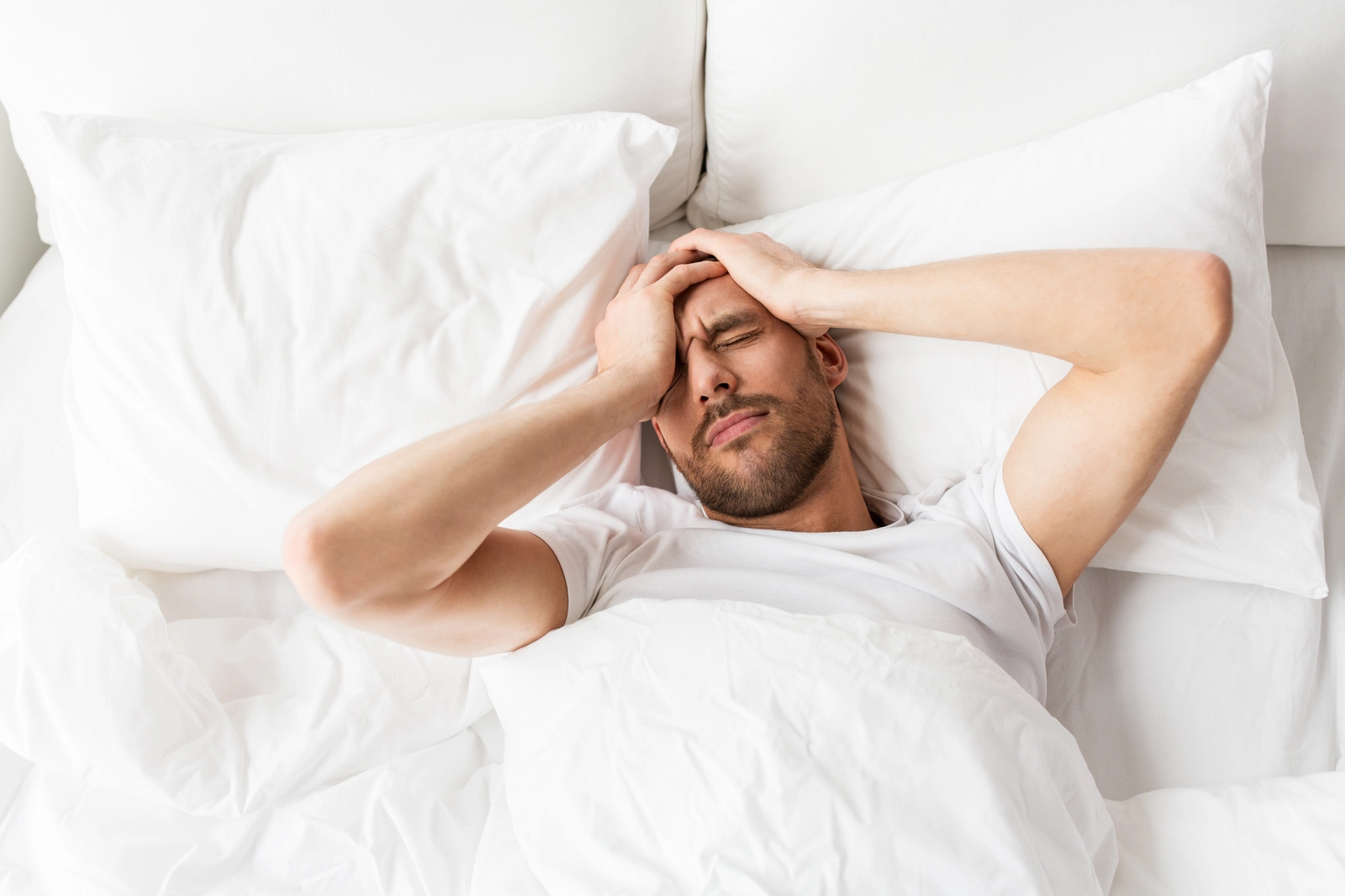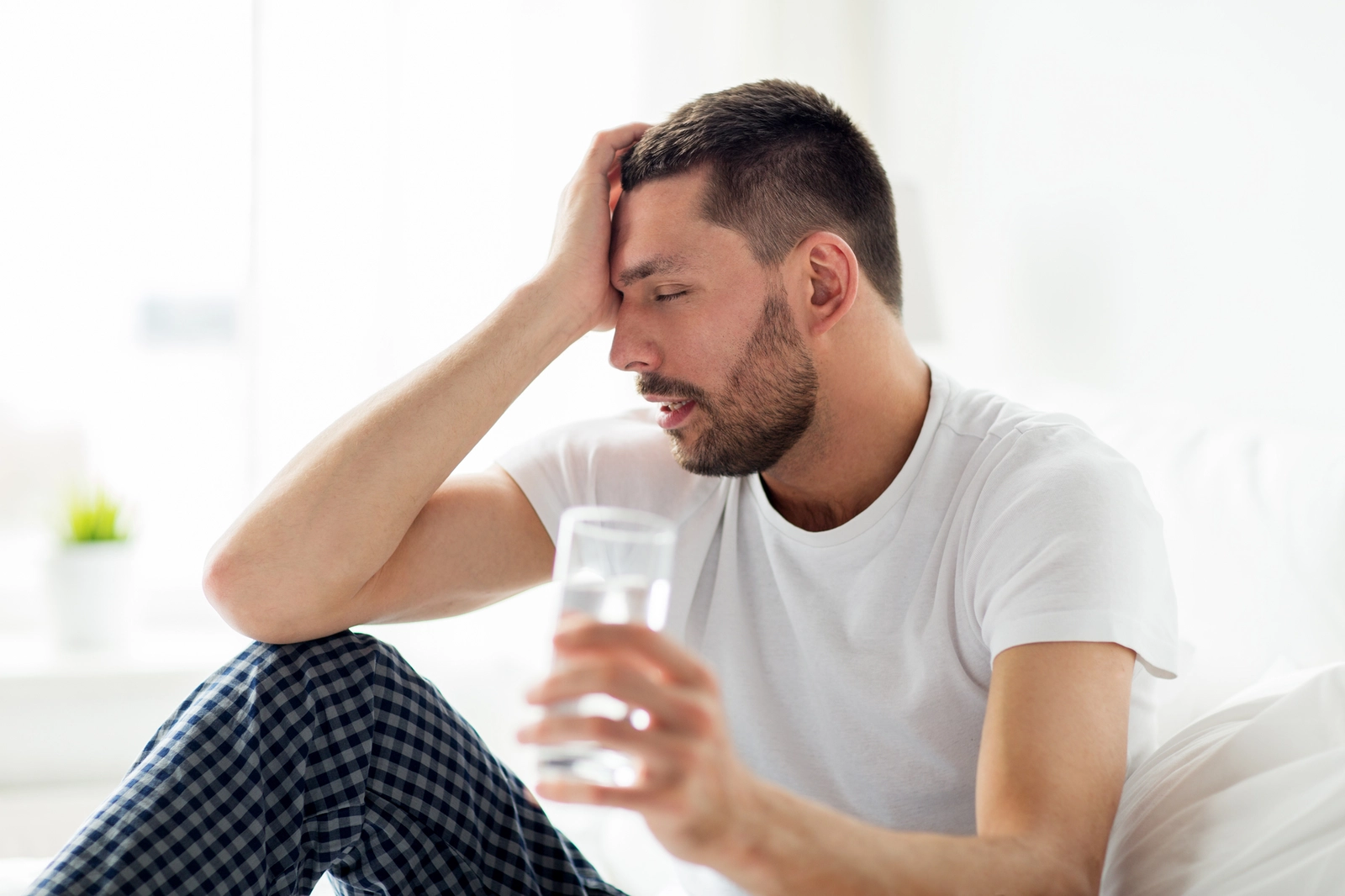Is It Safe To Detox From Alcohol At Home? Here’s What You Need To Know

- When you stop drinking suddenly and have grown dependent on alcohol to function, your body will try to adjust, and this activates withdrawal symptoms.
- When your body eliminates harmful toxins associated with excessive alcohol consumption, this is known as detox.
- Detoxing from alcohol is associated with serious withdrawal symptoms and medical complications, including hallucinations, severe delirium tremens (DT), seizures, and even death.
- Some people can detox at home under medical advice and review, but there are some dangers associated with this process, including a lack of support, delirium tremens, serious illness, and increased risk of suicide.
- Consult a medical provider before deciding to detox from alcohol at home.
There are some medical and mental health complications associated with the process of alcohol withdrawal. In most cases, it’s not recommended to detox from alcohol at home or without medical oversight. There may be some extenuating circumstances that mean detoxing at home is unavoidable, but it’s important to know the potential dangers associated with this process.
Detoxing From Alcohol: What Does It Look Like?
Alcohol use disorder (AUD) is a complex disorder that afflicts over 28 million U.S. adults and over 750,000 youths in 2021. [1] Overcoming the challenges associated with chronic or addictive alcohol use, such as cravings, liver issues, and social challenges, can be difficult to attempt – but the results are worth it.
When you’ve decided that alcohol no longer serves your goals or supports the person you want to be, quitting cold turkey can be the first thing you think of. However, the earliest stages of detoxification involve mild to severe withdrawal symptoms and significant general discomfort.
Alcohol Withdrawal Symptoms
If you struggle with alcohol abuse or AUD, your body and central nervous system (CNS) may have grown accustomed to the presence of alcohol. When you stop drinking suddenly, withdrawal symptoms can be activated as your body is trying to adjust.
Each individual’s withdrawal experience will vary, but the most common alcohol withdrawal symptoms include:[2]
- Mild tremors
- Elevated blood pressure
- Insomnia
- Anxiety
- Stomach upset
Some of the more severe and potentially dangerous symptoms can include:[3]
- Hallucinations
- Severe delirium tremens (DT)
- Seizures
- Death
Considering the potential for serious adverse effects, including life-threatening conditions such as DT, professional medical supervision is strongly recommended over attempting to detox from alcohol at home. If you or a loved one is experiencing some or all of these symptoms due to alcohol addiction or withdrawal, seek emergency medical treatment or call 911.
What is Delirium Tremens (DT)?
Delirium tremens (DT) is the official diagnosis of severe alcohol withdrawal and is associated with several serious complications, including:[4]
- Confusion or altered mental status
- Sympathetic system in overdrive
- Heart palpitations
- Hallucinations
- Cardiac circulation failure or collapse
- Elevated body temperature
- High blood pressure
Under the care of professional treatment, specific medications, primarily benzodiazepines such as Valium (diazepam) or Xanax (alprazolam), are often used to manage symptoms and reduce complications associated with withdrawal. With appropriate medical intervention, the mortality rate of DT can be significantly reduced from the potential high of 37%. [5]
Alcohol Withdrawal Timeline
There is a fairly common sequence to the process of withdrawal, but it can vary from person to person, depending on when the last drink was consumed, how much, how long they’ve been drinking excessively, genetics, metabolism, underlying health conditions, and other factors.
Initial mild symptoms of alcohol withdrawal can begin as early as a few hours after the last drink and moderate symptoms within the following 12 to 24 hours.[6] With prolonged excessive alcohol use, severe symptoms and delirium tremens can present within 48 hours after a sudden stop of alcohol intake and can last as long as 5 days. [7]
What To Know If You Detox From Alcohol At Home
In some cases, it is possible to undergo a home alcohol detox, but it will depend on their level of alcohol dependence. However, this should only be attempted under the direction and support of a healthcare provider.
For those considering at-home alcohol detox, medical professionals typically perform a comprehensive baseline assessment, including necessary blood tests, to determine suitability and monitor the detox process safely. [8] These precautions, paired with patient questionnaires and an accurate medical and mental health history, will help ensure patient safety during detox.
Benefits Of At-Home Detox
Under certain conditions and with the approval and supervision of healthcare professionals, at-home alcohol detox may be considered if professional detox programs are inaccessible. Remaining in a comforting space you’re familiar with can give you greater peace of mind.
Attempting alcohol detox at home may be a cost-effective option when professional treatment is outside of your budget or not fully covered by insurance. Remember that if medications are prescribed to reduce symptoms, that will be an additional cost.
While professional detox centers may restrict visitors to ensure a controlled environment for recovery, detoxing at home can offer the comfort of being around friends or family, provided it’s done under professional guidance. Family and friends can also watch you and help you get help if needed.
Dangers Of At-Home Detox
There are several risks associated with alcohol detox at home that highlight the importance of medical oversight and accurate assessments. Some dangers may include:[9]
- Lack of support when needed
- Delirium tremens
- Other substances on board (complicating the withdrawal process)
- Serious illness
- Increased risk of suicide
With such severe dangers, the need for a safe and supportive space where you can focus on withdrawal and recovery is apparent.
What Precautions Should Be Taken For At-Home Alcohol Detox?
If detoxing from alcohol at home is the best solution for you, here are a few recommended precautions to put in place:
- Doctor or Nurse Review: Consult a medical professional before detoxing at home. They should plan to check in with you every day for at least 4 days to discuss medication, symptoms, and mental health.
- Signed Care Contract: For your safety and to ensure you understand the risks, most healthcare providers supporting at-home detox will require a signed contract from you that communicates the process, boundaries, and expectations. [10]
- Plan a Path To Professional Care: It’s critical to establish a safety plan with your healthcare provider before beginning at-home detox, detailing immediate steps to transition to professional care if symptoms become severe or unmanageable. This could include visiting the hospital or checking into a professional detox program.
- Have On-Site Support: This could be friends, family members, sponsors, or even caregivers who can provide essential practical and emotional support as you navigate a challenging process. They can also help you get medical care if needed.
- Stay Hydrated: Hydration is important during withdrawal. Drink plenty of water and electrolytes to help your body eliminate harmful toxins.
Professional Detox and Alcohol Use Disorder Treatment
A professional detox would be appropriate for someone who depends on alcohol to function day to day but wishes to stop and restore natural functioning. Other treatment methods for alcohol use disorder and withdrawal include: [11]
- Medical detox
- Medications for symptom management (like naltrexone for relapse prevention and disulfiram for flu-like symptoms)
- Partial hospitalization or intensive outpatient treatment programs
- Individual and group therapy, like cognitive behavioral therapy (CBT), family therapy, and more
- 12-step support groups like Alcoholic’s Anonymous
- Other holistic and lifestyle interventions like yoga, journaling, reiki, and more
Detox in Safety and With Dedicated Support
Consult medical advice before trying to detox from alcohol at home. To learn more about the experience of a safe and supported professional detox or what happens after detox is over, reach out, and we’d be happy to light the way to a brighter, safer future.
Frequently Asked Questions About Alcohol Detox
Are you or a loved one struggling with Alcohol abuse?

